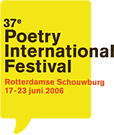Poet
|
Martin Reints 1950-... country: the Netherlands language: Dutch |
Martin Reints (Netherlands, 1950) is a poet who likes to think. It shows in his poetry. Or, he may be a thinker with a gift for writing poetry. In an interview after the publication of his second collection Lichaam en ziel (Body and soul, 1992) he said: ‘Thinking fascinates me. On the one hand you are what you can see, the reality around us, and on the other hand you are what’s in your head. What is the relation between the two?’ In a good-natured, crystal-clear, often humorous manner Martin Reints’s poems probe what he sees around him and what is in his head. The ‘I’ allows his thoughts to spread, first along the table he is working at, then along the furniture and objects in the room, along the incoming light, the darkness or the sounds in the interior, before dispersing into the outside world. In fact, all Martin Reints’s poems are thought exercises. They are concerned with environment, the passage of time, memory, the relation between the ‘I’ and what surrounds it. The poems are free in form, but very precise, ‘carefully arguing’ (to quote critic Piet Gerbrandy). Rob Schouten expressed it like this: ‘Reints’s poems have a smooth, natural, unconstrained flow; they combine gravity with humour, enjoyment with philosophy, spontaneity with precision. They are a joy to read and don’t leave one’s thoughts untouched.’ Martin Reints has published three volumes of poems: Waar ze komt daar is ze (‘Where she comes, there she is’, 1981), Lichaam en ziel (‘Body and soul’, 1992, Herman Gorter Prize) and Tussen de gebeurtenissen (‘Between the events’, 2000). For his collection of essays Nacht- en dagwerk (‘Night and day-work’, 1988) he received the Jan Greshoff Prize. Martin Reints (Netherlands, 1950) has published three books of poetry, one of which, Lichaam en ziel (body and soul, 1992), won the Herman Gorter Prize. For his collection of essays Nacht- en dagwerk (night and day-work, 1998) he was awarded the J. Greshoff Prize. Reints’s thoughful, lucid poems have been described as thinking exercises encouraging the reader to look at his everyday surroundings in new ways. Poets: |


